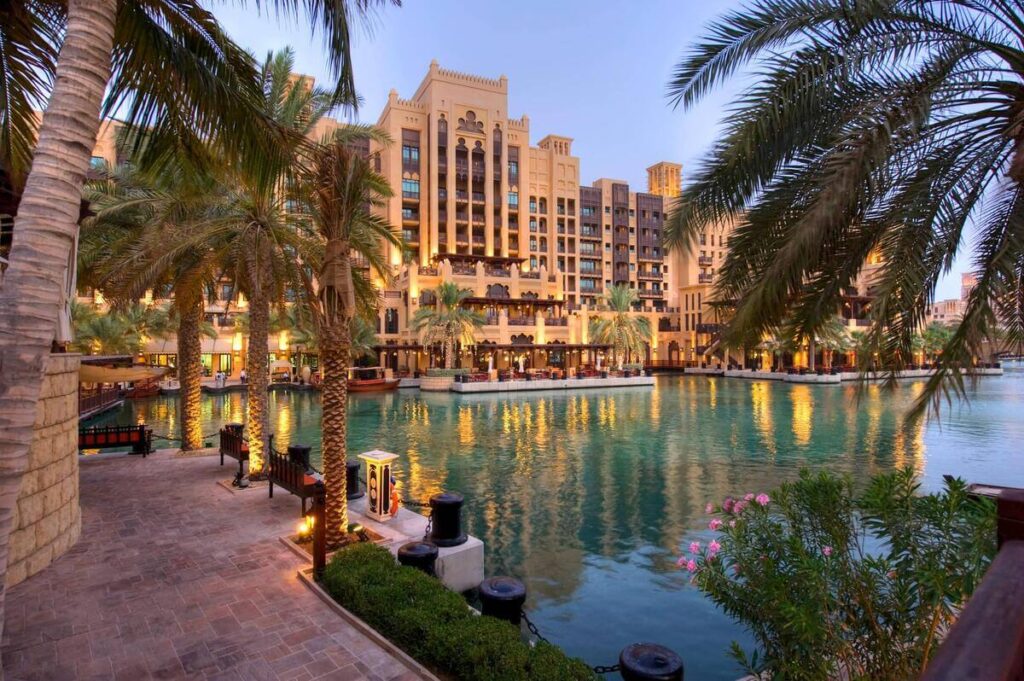Incorporating a business in the UAE has become a popular solution for entrepreneurs worldwide seeking tax optimization. The UAE’s low tax rates, absence of many taxes obligatory in other countries, and free economic zones offering favorable tax conditions significantly minimize tax liabilities. An effectively organized corporate structure in the UAE can substantially reduce these liabilities. We have analyzed various methods to lessen the tax burden for businesses established by foreigners in the Emirates. We want to explain companies’ taxes in the UAE and how to reduce these payments by creating an appropriate corporate structure.
Taxes for Legal Entities in the UAE

Even though introducing VAT and corporate income tax means the United Arab Emirates is no longer a tax-free country, it remains one of the key and most attractive jurisdictions for foreign investors. Registering a company in the UAE exempts you from paying taxes on capital gains, dividends, legal entity reorganization, and intra-group transactions. Conducting transactions between companies within the same group without paying taxes is essential in building a business structure.
However, a legal entity registered in the Emirates is required to pay the following:
- Value Added Tax (VAT): Introduced in 2018, the VAT rate is 5%, considerably lower than in most other countries. VAT is payable by companies whose annual revenue exceeds 375,000 AED.
- Corporate Income Tax: Effective June 1, 2023, this tax is levied on companies with an annual net income exceeding 375,000 AED. Only the profit above this amount is taxable. The corporate tax rate is 9%. Exemptions from this tax, upon approval by the Federal Tax Authority and under certain conditions, include:
- Companies engaged in qualified activities.
- Qualified investment funds.
- Subsidiaries wholly owned by a qualified investment fund can also be utilized in structuring a corporate entity in the UAE.
- Excise Tax: Levied on goods deemed harmful to health and the environment, as determined by the UAE’s Cabinet of Ministers. Companies that produce, import, or store these goods are subject to excise tax. The rates are:
- 50% for carbonated drinks (excluding water) and food products containing sweeteners and sugar.
- 100% for tobacco products, energy drinks, electronic cigarettes, and vapes.
- Import-export duties — in the UAE, companies do not pay duty on exports. Still, a 5% duty is levied on the cost of imported goods, except for alcohol and tobacco products, for which 100% and 50% duty is charged on import.
Tax Incentives for Legal Entities in the UAE
One way businesses can reduce taxes in the UAE is to register a company in a free economic zone. Currently, there are 45 free zones in the country, with a significant number located in the emirate of Dubai. Companies registered in a free zone are exempt from paying the same taxes as other legal entities, and additionally, they do not pay:
- Value Added Tax (VAT).
- Import and export duties.
- Corporate income tax on profits from international activities.
Companies in a free zone may also be exempt from paying corporate income tax on profits earned within the free zone if they:
- Maintain a sufficient level of presence in the Emirates.
- Generate income from qualified activities, regardless of the annual yield.
- Adhere to the arm’s length principle when transactions with related legal or natural persons are conducted on economically advantageous terms in compliance with transfer pricing laws and provide transfer pricing reports upon request from tax authorities.
Qualified legal entities registered in free zones can choose the general corporate tax system, paying 9% on profits exceeding 375,000 AED.
Building a Corporate Structure in the UAE for Tax Burden Reduction

Considering the peculiarities of the tax system currently in operation in the Emirates, creating a suitable corporate structure for your business is a wise decision for increasing profitability and optimizing taxes. This could be the following:
- A qualified investment fund owns the share capital of companies and manages them. Such a structure will not be subject to corporate income tax, significantly reducing the tax burden. Furthermore, it can be structured as a local LLC company with 100% foreign ownership. UAE Cabinet Resolution No. 16/2020 allows direct investment funds to operate in the country’s manufacturing, agricultural sectors, and service industries.
- A holding structure, registered in the form of:
- An LLC company (analogous to a limited liability company) with one or several parent companies.
- A corporation comprises a parent company, and a group of subsidiaries with different business focuses. Intra-group transactions in such a business structure are not subject to taxation, as mentioned earlier. This will help reduce tax payments.
We have prepared this article to provide general information on how to reduce taxes in the UAE by building a corporate business structure. If you want to receive detailed advice from professional, highly qualified lawyers and business experts — contact the managers of Dynasty Business Adviser!









